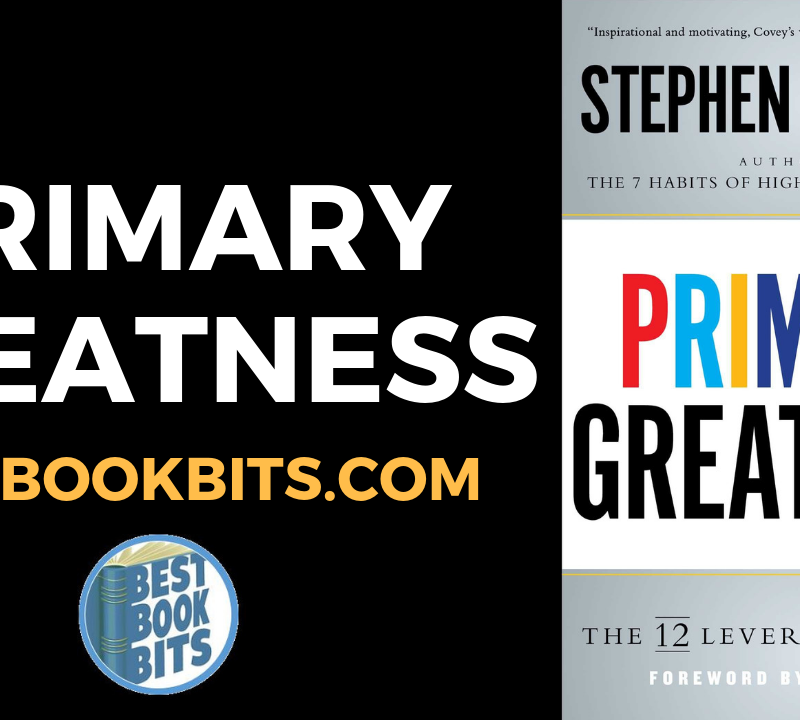♣ CLICK THIS TO STOP TRYING TO ACHIEVE YOUR GOALS BY YOURSELF AND BE COACHED TODAY HERE
♥ CLICK THIS TO DOWNLOAD THIS FREE PDF SUMMARY HERE
♦ CLICK THESE FOR THE FOLLOWING Book | Summaries | Course
YouTube |Spotify | Instagram | Facebook | Newsletter | Website
HAPPINESS By Matthieu Ricard
BOOK SUMMARY: WHAT’S IN IT FOR ME? BANISH NEGATIVITY AND SUFFERING FROM YOUR MIND FOREVER.
The key to happiness is something that we all wish to possess. If you doubt that, just consider how many tons of books about happiness burden shelves worldwide.
And yet, so many of these books fail to teach you one crucial element: you can’t become happy through external things like success or wealth. It’s only by looking inside yourself that you can find real joy. This book summary, based on the thinking of a highly influential Buddhist monk and philosopher, show you how to do this, providing the basics you need to attain true happiness.
In this book summary, you will learn
- why fleeting pleasure will ultimately lead to pain;
- what the hedonistic treadmill is; and
- why you are not one but two entities.
SUMMARY PT 1: REAL HAPPINESS IS A LONG-TERM MENTAL STATE WE HAVE TO CONSCIOUSLY WORK TOWARD.
Are you happy? Interestingly, how you answer that question might depend on where you’re from. There’s a wide gap between the Western conception of happiness and the Buddhist idea of true, long-lasting happiness.
Many Westerners think of happiness as a momentary, fleeting feeling. The intensity and duration depend on circumstances outside their control. A Westerner might feel happy about passing an exam, for instance, or winning a game or having a pleasant encounter with someone.
Happiness, however, shouldn’t be limited to such fleeting moments. Real, profound happiness is something more: it comes with having a healthy state of mind.
That means cultivating a mental state unburdened by memories and future plans. The only thing that matters is what’s happening now: the present. So the key to leading a happy and fulfilling life is being at peace with the present.
This approach to happiness mirrors Buddhist thought, which holds that one can attain a state of profound and sustained well-being when freed of negative emotions. Buddhists denote this state with a Sanskrit word: sukha.
Happiness is something that can be cultivated, but you do have work at it. Studies have shown that about 25 percent of our potential for happiness is defined by our genes – but that means 75 percent is up to us!
So you have a lot of power over your happiness. The way you think, live and perceive the world around you has a major impact on your mental well-being.
All in all, happiness is a matter of interpretation. It may be very difficult to change the world, but changing how you interpret it is manageable.
SUMMARY PT 2: SEEK HAPPINESS WITHIN YOURSELF, NOT FROM THE OUTSIDE WORLD.
You can’t buy happiness. In fact, external factors in general have a limited impact on happiness. Wealth and social status do have some effect on your happiness, but they only account for about 10 to 15 percent of it.
Happiness would be out of reach if it was purely an external phenomenon. After all, our desires know no limits; the amount of control we have over the world, in contrast, is very limited.
Consider love, for example. There’s no way to ensure that your lover will always love you back. So if your happiness depends on that, you’re setting yourself up for disappointment and heartbreak.
People often think they have everything they need to be happy – and yet still feel unhappy. Psychologists Philip Brickman and Dan Campbell call this the hedonic treadmill. It’s as if we’re running on a treadmill, sweating and straining, but never advancing an inch. We eagerly pursue the new and the exciting, but our level of happiness doesn’t rise.
A person might get excited about buying a new car, for example, only to have that joy squashed when a newer model comes out. That’s what happens when you seek happiness in the outside, instead of focusing on your inner being.
It’s useless to cling to temporary things like cars. Accepting that is the first step toward finding inner peace and true serenity. True happiness comes from reaching such a high state of inner well-being that you’re no longer broken by failure or blown full of false pride by success.
Etty Hillesum, a writer who died in the Holocaust, wrote about this just a year before she lost her life in Auschwitz. “When you have an interior life,” she wrote, “it certainly doesn’t matter what side of the prison fence you’re on.”
♣ CLICK THIS TO STOP TRYING TO ACHIEVE YOUR GOALS BY YOURSELF AND BE COACHED TODAY HERE
♥ CLICK THIS TO DOWNLOAD THIS FREE PDF SUMMARY HERE
♦ CLICK THESE FOR THE FOLLOWING Book | Summaries | Course
YouTube |Spotify | Instagram | Facebook | Newsletter | Website
SUMMARY PT 3: HAPPINESS IS NOT THE SAME THING AS PLEASURE.
Before you can achieve true happiness, you have to understand what it is – and then pinpoint those things that encourage it. But many people start down the wrong path, confusing happiness with other enjoyable emotions, like pleasure.
Pleasure might seem like the fastest and easiest road to happiness, but, sooner or later, you’ll come to a dead end. Pleasure is momentary by nature: it occurs under certain circumstances at a certain time.
A pleasurable experience can quickly become neutral or unpleasant because pleasure is so unstable and fleeting. A good meal, for example, is enjoyable up to a certain point; if you eat to excess, however, you’ll get sick.
Long-lasting happiness shouldn’t be confused with pleasure. A lot of people assume that fame or wealth would bring them all they desire, but such things offer only short-term satisfaction and won’t have much influence on your well-being.
In fact, one study found that even winning the lottery doesn’t change a person’s happiness that much. It causes a temporary spike in happiness but does nothing to prevent that happiness from falling back to former levels.
Chasing immediate, pleasurable desires ultimately leads to disappointment. And we only focus on external pleasures because we’re too scared to turn our attention toward the place where it really counts: our inner world.
That’s why people seek external stimulation and distractions, like shopping, alcohol or drugs. Unfortunately, those things only pull us away from each other and, if we’re not careful, alienate us from ourselves.
Western countries have staggering depression rates because of this. Life becomes meaningless when you lose that crucial connection to yourself and the world around you.
SUMMARY PT 4: HAPPINESS ISN’T ABOUT AVOIDING SUFFERING. IT’S ABOUT FREEING YOURSELF FROM WORRIES ABOUT LIFE.
In developed countries, about three-quarters of people claim to be satisfied with their quality of life. And yet, levels of unhappiness remain high. Why is this?
The answer has to do with the way people understand what happiness is. A lot of people think happiness is just a momentary respite from suffering. They might feel happy on the weekend because they don’t have to work, for example.
But the concept of happiness is elusive and deceptive. As we’ve seen, most people think happiness hinges on temporary things like relationships or money, so they’re at a high risk of becoming unhappy if they lose their partner or their job. This partly explains why 15 percent of North Americans experience a major episode of depression before the age of 35.
Buddhists call this depressive state dukkha – the opposite of sukha. Dukkha doesn’t only refer to temporary unpleasantness; it’s a high vulnerability to suffering that can cause a person to feel like life is meaningless when things don’t go as hoped.
How can we end this cycle of suffering? Buddhism holds that suffering is universal and unavoidable, but that our pain doesn’t actually stem from the suffering we experience. Rather, it stems from the unhappiness we create.
If a person loses her job, for instance, she’ll be consumed by unhappiness. That unhappiness doesn’t actually result from the loss of the job itself, though. It arises from this person’s worries about loss of wealth, status and career prospects.
Giving up this unnecessary worrying is the key to moving toward true, long-lasting happiness and leading a more fulfilling life.
SUMMARY PT 5: THE EGO IS THE TRUE SOURCE OF SUFFERING AND CONFLICTED EMOTION.
Have you ever felt like everyone around you was self-centered or self-absorbed? Most people put themselves before all else. Buddhism, however, sees such egotism as a source of misery.
The ego causes a lot of problems and conflict with personal identity. To sort this out, Buddhism distinguishes between two “I”s: the natural, instinctive “I” we use when we say “I’m hungry” and the conceptual “I” we imagine but that doesn’t actually exist.
Think of it this way: you might act tough or proud around your colleagues or friends, but that’s just an imagined identity. You only act like that because that’s how you want to be perceived by those people.
But it’s this second “I” that slowly becomes the core of a person’s being. They’ll turn away from anything they think threatens it, and gravitate toward anything that pleases or flatters it.
That’s why a minor joke made at your expense at work might feel like a major attack on your character. It’s a blow to your ego and comes off as a threat to your identity when it really shouldn’t be such a big deal.
Our egos also arbitrarily assign certain qualities to the people and things around us. When you think “this is nice” or “this is ugly,” you unconsciously let your mind superimpose these attributes on the thing you’re thinking about.
This habit leads to labeling a person as good or evil based only on one aspect of that person’s personality. Egos are stubborn, too: once you put a label on something it can be hard to think of that thing in any other way.
Further trouble arises as the gap between the real world and the ego’s conceptions widen. The ego will reach a point where it falters and shatters, taking your self-confidence with it and leaving you with only frustration and suffering.
SUMMARY PT 6: FREE YOURSELF FROM YOUR OWN EGO.
The concepts of identity and status are closely connected to unhappiness. That’s why it’s imperative to detach from your ego.
A person who clings to a specific self-image will do anything to make sure that that image is recognized and accepted. Such a person will devote all their time and energy to seeking validation. Ever worked with someone who spends more time smiling and cracking jokes than doing actual work? Such people are usually overly invested in having their identity praised and accepted.
According to Buddhist thought, real confidence and inner peace can only be achieved through egolessness. The ego is simply too fragile to be a reliable foundation. When you think too highly of yourself, you’re putting yourself at risk of being emotionally shut down when things do go wrong.
That’s why it’s important to separate yourself from your ego. Detaching from your ego makes you less vulnerable and gives you inner strength, putting you on the path toward true, profound happiness!
Humility is another key part of ego-free happiness. So acknowledge your limits! If you’re humble, you won’t need validation from other people, a freedom that can prevent much distress and disappointment. In that sense, humility is the source of inner freedom.
And when you become humble and relinquish your ego, you can also focus more on other people’s concerns. You’ll be much more attuned to the sufferings of others once you stop regarding yourself as of prime importance.
History shows that real heroes are people who freed themselves from their egos. Gandhi, Martin Luther King, Jr., Mother Teresa, the Dalai Lama, Nelson Mandela – these people focused on helping others because they’d ceased to focus on themselves.
SUMMARY PT 7: YOUR THOUGHTS AND EMOTIONS CAN BE YOUR WORST ENEMIES.
Thoughts and emotions can be your best friends – but they can also be your worst enemies.
The main sources of pain in our lives often aren’t what we think they are. During war, for example, it’s been shown that depression and suicide rates actually decrease. The most powerful causes of distress are elsewhere. But where?
When you feel like your life is falling apart, it seems like everything in the world is against you. Any little thought or perception can become a source of suffering. So, after experiencing a breakup or the death of a loved one, for example, even the smallest thing can trigger a storm of rage or despair.
It’s not unusual to be consumed by negative thoughts during difficult times, but those thoughts are often out of sync with reality.
Think about your last breakup, for example. There was probably a time when you completely hated your ex-partner. But now, after some time has passed, how do you about this person? You probably realize you focused too much on his or her negative traits when things were falling apart.
Negative emotions can get out of control when we dwell on them like this. They can fester and grow like an untreated infection.
If you let yourself burst into rage whenever you’re cut off in traffic, for example, that can turn into an even worse habit. You might start pointlessly losing your temper in even more petty situations.
That’s why it’s essential to identify your triggers. Overcoming your triggers is an important part of the journey toward inner peace. You might be tempted to make witty but mean-spirited remarks when you’re mad, for instance, but that only makes you and others around you feel worse.
SUMMARY PT 8: EXAMINE YOUR NEGATIVE THOUGHTS AND EMOTIONS SO YOU CAN OVERCOME THEM AND ACHIEVE INNER PEACE.
If you don’t control your own emotions, they might end up controlling you. How can you prevent this?
Buddhism holds that opposite emotions cannot arise at the same instant. We might fluctuate between love and hate, for example, but it’s impossible to feel both for the same person at the same time.
Consequently, you can gradually eliminate hate and other negative emotions by familiarizing yourself more and more with altruistic love and kindness – because love and hate simply can’t exist at the same time.
Positive thoughts work as an antidote to the negativity in your life. They’re the only true source of long-lasting well-being.
If you suppress your negative emotions, though, they’ll eventually resurface in other ways, perpetuating your unhappiness and furthering your troubles. You need to acknowledge the existence of these negative thoughts so they don’t consume you.
Negative emotions, thoughts and memories can be overcome, however. And once they are, they’ll dissipate without leaving a trace in your mind. They’ll be absorbed back into your consciousness like waves going back into the sea and slowly lose their grip on your mind.
You can only understand your negative thoughts by thinking deeply about their roots. You’ll be able to deconstruct them and see that, at the core, they don’t have any substance.
So if you’re feeling overwhelmed by anger, look inwards. You’ll realize your anger is just an emotion and you don’t have to let it control you. After all, it’s just a temporary state of suffering and you’re the one who’s reacting to it. This kind of thinking allows you to detach yourself from your anger and prevents you from succumbing to a momentary fit of rage.
IN REVIEW: HAPPINESS BOOK SUMMARY
The key message in this book:
Achieving long-lasting happiness is hard work. It requires overcoming your ego, reconciling yourself to negative emotions, reorienting your world view and re-examining the definition of concepts like “happiness” and “pleasure.” You can’t do those things overnight, but if you stay dedicated to the path, you can bring yourself to a high sense of sukha – an achievement much more fulfilling than any temporary pleasure you might get from wealth or fame.
Actionable advice:
Eliminate your pain by focusing on it.
When you experience something that causes pain, whether physical or emotional, bring it into focus, even if it’s difficult. Visualizing the pain will lessen it, because you’ll understand that it’s an emotion separate from your true identity.
♣ CLICK THIS TO STOP TRYING TO ACHIEVE YOUR GOALS BY YOURSELF AND BE COACHED TODAY HERE
♥ CLICK THIS TO DOWNLOAD THIS FREE PDF SUMMARY HERE
♦ CLICK THESE FOR THE FOLLOWING Book | Summaries | Course
YouTube |Spotify | Instagram | Facebook | Newsletter | Website













